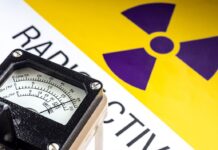In the dynamic field of healthcare, where diagnostic radiology plays an indispensable role in patient diagnosis and treatment, ensuring the safety of both patients and healthcare professionals is paramount. Radiation safety training is a crucial element of this effort, particularly in Indian diagnostic centers. In this article, we’ll delve into the importance of radiation safety training for healthcare professionals and its pivotal role in maintaining safety standards.
The Significance of Radiation Safety: Radiation is a potent tool in medicine, used for various diagnostic and therapeutic purposes. However, it can be hazardous if not managed correctly. Healthcare professionals working with radiation-emitting equipment must be well-trained to mitigate risks effectively.
Compliance with Regulatory Standards: The Atomic Energy Regulatory Board (AERB) in India sets stringent guidelines and regulations regarding the use of radiation in healthcare. Compliance with these standards is mandatory, and radiation safety training is a key aspect of ensuring adherence.
Key Components of Radiation Safety Training:
- Radiation Basics: Training begins with understanding the fundamentals of ionizing radiation, its types, and its effects on the human body.
- Regulatory Compliance: Healthcare professionals must be well-versed in the specific regulations set by the AERB, ensuring they follow the law in their daily practice.
- Equipment Operation: Proper operation of radiation-emitting equipment is taught, including safe techniques for minimizing radiation exposure.
- Personal Protective Equipment (PPE): Training covers the correct usage of protective gear, such as lead aprons, thyroid collars, and lead glasses, to safeguard against radiation exposure.
- Patient Safety: Healthcare professionals learn how to ensure the safety of patients during radiological procedures, including proper positioning and shielding.
- Emergency Procedures: Training includes protocols for responding to radiation-related incidents or accidents, ensuring swift and effective responses.
Continuous Education and Updates: The field of radiation protection is dynamic, with new technologies and safety measures constantly emerging. As such, healthcare professionals must engage in ongoing education to stay current with best practices and evolving safety standards.
The Role of Radiation Safety Officers (RSOs): Each diagnostic center in India should designate a Radiation Safety Officer (RSO) responsible for overseeing radiation safety practices. RSOs play a pivotal role in training and guiding healthcare professionals in the diagnostic center.
Creating a Culture of Safety: It’s not just about training; it’s about fostering a culture of safety within the workplace. Healthcare professionals should be encouraged to prioritize safety in their daily routines, ensuring that safety measures are never compromised.
Conclusion: Radiation safety training for healthcare professionals is not just a regulatory requirement; it’s a vital component of ensuring the health and well-being of patients and medical staff in Indian diagnostic centers. With the ever-increasing demand for diagnostic radiology services, the importance of proper training cannot be overstated.
By investing in comprehensive and ongoing radiation safety training, diagnostic centers in India can not only adhere to regulatory standards but also enhance the quality of patient care and demonstrate their commitment to the highest safety standards. It is a vital investment in both safety and the continued growth of healthcare services in the country.








